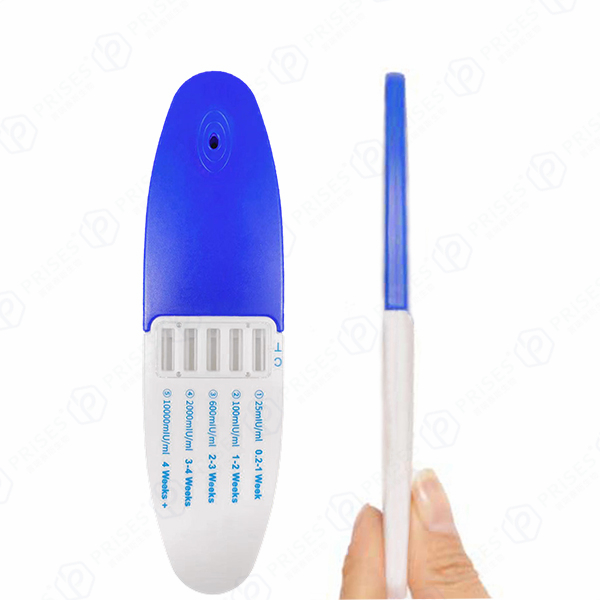Aug . 22, 2024 02:55 Back to list
Leading Manufacturer of Wholesale HCV Rapid Test Kits for Efficient Diagnosis
Understanding the Wholesale HCV Rapid Test Manufacturer Landscape
The healthcare industry has seen significant advancements in diagnostic technologies, particularly in the field of infectious diseases. Among these, hepatitis C virus (HCV) testing has gained immense attention due to the staggering rates of infection worldwide. In the wake of these developments, wholesale HCV rapid test manufacturers play a crucial role in providing timely and accurate diagnosis, essential for effective patient management and public health strategies.
The Importance of HCV Testing
Hepatitis C is a viral infection that primarily affects the liver, often leading to chronic disease with serious complications such as cirrhosis and liver cancer. Early detection through efficient testing is vital in curbing the spread of the virus and initiating appropriate treatment. Traditional testing methods, although effective, can take days to yield results, resulting in delayed diagnoses. This is where rapid tests come into play.
Rapid HCV tests offer several advantages, including the possibility of obtaining results within minutes, which is essential for prompt clinical decision-making. These tests are designed to be user-friendly and can be deployed in various settings, including hospitals, clinics, and even remote locations. This flexibility significantly enhances access to testing, particularly in areas with limited healthcare infrastructure.
The Role of Wholesale Manufacturers
Wholesale HCV rapid test manufacturers are critical in the supply chain, ensuring that these essential diagnostics are available globally. They specialize in producing large volumes of test kits that meet international quality standards, making them accessible and affordable for healthcare providers and patients alike. By operating at a wholesale level, these manufacturers can reduce costs and improve the distribution efficiency of testing kits.
wholesale hcv rapid test manufacturer

When selecting a wholesale HCV rapid test manufacturer, several factors come into play. Quality assurance is paramount; manufacturers must adhere to strict regulatory guidelines and industry standards to ensure their products are safe and effective. Certifications such as ISO and CE mark often indicate that a manufacturer prioritizes quality. Additionally, the versatility of the testing kits, including their ability to detect antibodies and viral RNA, can influence procurement decisions.
Innovations in HCV Testing
As technology advances, so do the capabilities of HCV rapid tests. Modern rapid tests utilize various technologies, including enzyme-linked immunosorbent assays (ELISA) and chromatographic assays, to enhance detection rates and accuracy. Innovations, such as mobile application integration, are also emerging, enabling healthcare providers to track test results in real-time and facilitate easier patient follow-up.
Moreover, the advent of point-of-care testing has transformed how HCV testing is conducted. This approach allows healthcare providers to conduct tests at the patient's side, reducing wait times and improving patient satisfaction. As wholesale manufacturers continue to innovate, there's a growing emphasis on creating tests that are not only accurate but also easy to use and transport.
The Future of HCV Testing
The ongoing fight against hepatitis C requires a collective effort from healthcare providers, policymakers, and manufacturers. As awareness increases regarding the disease and its consequences, the demand for rapid testing solutions is expected to grow. Wholesale HCV rapid test manufacturers need to stay ahead of emerging trends and shifts in healthcare practices while continuing to focus on affordability and accessibility.
In conclusion, wholesale HCV rapid test manufacturers are pivotal in the effort to combat hepatitis C through innovative testing solutions. Their contributions help ensure that timely and accurate diagnostics are available, ultimately leading to better health outcomes for individuals and communities worldwide. As we move forward, it is essential for these manufacturers to adapt to changing needs, leveraging technology and quality control to further enhance the effectiveness of HCV testing protocols.
-
Dengue NS1 Rapid Diagnostic Test Kit
NewsMar.07,2025
-
Dengue NS1 Rapid Diagnostic Test Kit
NewsMar.07,2025
-
Dengue NS1 Rapid Diagnostic Test Kit
NewsMar.07,2025
-
Transferrin Rapid Test Cassette Tumor Marker TF Card
NewsMar.07,2025
-
Malaria Pf Pan Rapid Diagnostic Test Kit
NewsMar.07,2025
-
malaria pf / pan ag rapid test
NewsMar.07,2025

